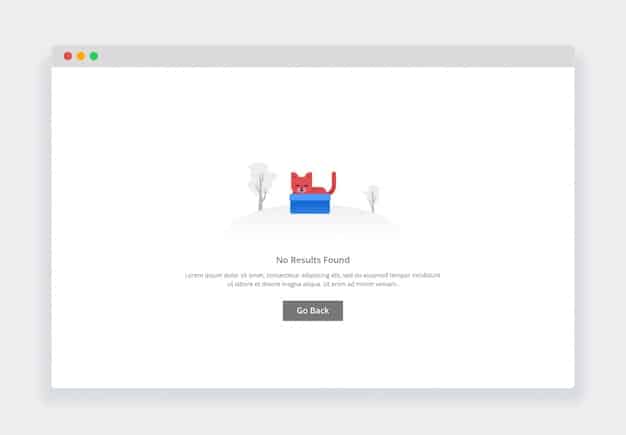Privacy Showdown: DuckDuckGo vs. Startpage vs. Brave Search

Privacy-Focused Search Engines: A Comparison of DuckDuckGo, Startpage, and Brave Search explores the strengths and weaknesses of each search engine, assessing their approaches to data collection, ad tracking, and overall user privacy, and aims to equip users with the information needed to choose the best option for their needs.
In an era where digital privacy is increasingly under threat, the choice of search engine can significantly impact your online footprint. This article, Privacy-Focused Search Engines: A Comparison of DuckDuckGo, Startpage, and Brave Search, aims to help you navigate this complex landscape.
Understanding the Need for Privacy-Focused Search Engines
Traditional search engines, while convenient, often come at the cost of your privacy. They track your searches, collect data about your browsing habits, and use this information to personalize ads and tailor search results. For many users, this level of data collection is unacceptable, leading them to seek out privacy-focused alternatives.
Privacy-focused search engines offer a different approach. They prioritize user privacy by minimizing data collection, avoiding ad tracking, and providing more anonymous search results. Let’s delve into why this matters.
The Drawbacks of Traditional Search Engines
The primary concern with traditional search engines is the sheer volume of data they collect. This data can be used to create detailed profiles of users, which can then be used for targeted advertising, personalized content, and even predictive modeling. While some users may appreciate the convenience of personalized experiences, others are wary of the potential for misuse and abuse.
- Data Collection: Traditional search engines collect data about your search queries, browsing history, location, and device information.
- Ad Tracking: They use cookies and other tracking technologies to monitor your online activity and serve you personalized ads.
- Privacy Concerns: The vast amount of data collected raises concerns about privacy breaches, data security, and the potential for discrimination.
The accumulation of these points highlights the importance of exploring alternatives that respect user privacy.
In conclusion, understanding the drawbacks of traditional search engines underscores the necessity for privacy-focused options, which aim to minimize data collection and protect user anonymity.
DuckDuckGo: The Privacy Advocate
DuckDuckGo has emerged as one of the most well-known and widely used privacy-focused search engines. It distinguishes itself by not tracking your searches or personalizing search results based on your browsing history. This ensures that everyone gets the same search results for a given query, regardless of their past online activities.
DuckDuckGo emphasizes simplicity and transparency in its privacy policies. It does not store your search history, does not use tracking cookies, and does not share your personal information with third parties. This commitment to privacy has made it a popular choice for users who are concerned about online surveillance.

Key Features of DuckDuckGo
DuckDuckGo offers a range of features designed to protect your privacy while providing a useful search experience. Let’s explore some of them.
- No Tracking: DuckDuckGo does not track your searches or browsing history.
- Private Search Results: Search results are not personalized based on your past online activities.
- Bangs: DuckDuckGo allows you to quickly search other websites directly from the search bar using special commands called “bangs.” For example, “!g search term” will search Google.
DuckDuckGo’s features underscore its commitment to user privacy and providing a straightforward search experience.
In summary, DuckDuckGo’s dedication to privacy and user-centric features make it a strong contender for anyone seeking a safer online search experience.
Startpage: The Google Proxy
Startpage takes a different approach to privacy-focused search. Instead of building its own search index, it acts as a proxy for Google, providing you with Google’s search results without tracking your searches or collecting your personal information. This allows you to enjoy the quality of Google’s search results while maintaining your privacy.
Startpage anonymizes your search queries before sending them to Google, ensuring that Google does not know who is conducting the search. It also strips away any tracking cookies or identifying information from the search results before displaying them to you. This effectively creates a privacy shield between you and Google.
How Startpage Protects Your Privacy
The core strength of Startpage lies in its ability to provide Google search results without compromising user privacy. Here’s how they achieve this.
- Anonymous Google Results: Startpage provides Google’s search results without tracking your searches.
- No Tracking Cookies: It strips away tracking cookies from search results.
- IP Address Anonymization: Startpage anonymizes your IP address to protect your identity.
These measures ensure users can leverage Google’s search capabilities while maintaining a high level of privacy.
In conclusion, Startpage offers a unique blend of search quality and privacy protection, making it a viable option for those who rely on Google’s search results but value their anonymity.
Brave Search: The Independent Challenger
Brave Search is the newest entrant in the privacy-focused search engine arena, developed by the team behind the Brave browser. Unlike DuckDuckGo and Startpage, Brave Search has built its own independent search index, meaning it does not rely on other search engines for its results. This allows Brave Search to offer a truly independent and privacy-focused search experience.
Brave Search emphasizes transparency and control over your data. It does not track your searches, does not personalize search results, and does not use tracking cookies. It also offers a unique feature called “Brave Rewards,” which allows you to earn cryptocurrency for viewing privacy-respecting ads.

Brave Search’s Standout Features
Brave Search brings several distinctive features to the table, enhancing both privacy and user experience.
Let’s explore some key aspects:
- Independent Index: Brave Search has its own independent search index, reducing reliance on other search engines.
- Brave Rewards: Users can earn cryptocurrency for viewing privacy-respecting ads.
- Privacy-First Approach: No tracking, no personalization, and no tracking cookies.
Brave Search’s unique approach to privacy and rewards makes it an innovative option.
In summary, Brave Search provides a compelling alternative for users seeking an independent, privacy-centric search experience, complete with innovative features like Brave Rewards.
Privacy Comparison: A Head-to-Head Analysis
When choosing a privacy-focused search engine, it’s essential to compare their privacy practices directly. Each search engine – DuckDuckGo, Startpage, and Brave Search – employs different methods to protect user data. Understanding these differences can help you make an informed decision based on your specific privacy needs.
Let’s dissect how each search engine handles data collection, ad tracking, and personalization to provide a clear comparison.
Digging into Data Practices
The core of privacy lies in how data is handled. Here’s how each search engine addresses this:
- DuckDuckGo: Doesn’t track searches or browsing history, ensuring complete anonymity.
- Startpage: Anonymizes queries sent to Google, preventing Google from tracking you directly.
- Brave Search: Operates its own independent index, eliminating reliance on third-party tracking.
These varying approaches offer different levels of privacy depending on user concerns.
In conclusion, understanding each search engine’s data practices is crucial for choosing the one that aligns best with your personal privacy preferences.
User Experience and Search Quality Showdown
While privacy is paramount, user experience and search quality are also critical factors. A search engine can be incredibly private, but if it doesn’t provide relevant and accurate results, it won’t be very useful. The balance between privacy and functionality is what makes a search engine truly valuable.
Let’s assess how DuckDuckGo, Startpage, and Brave Search stack up in terms of user experience and search quality.
Search Results and Interface Evaluation
Each search engine offers a unique take on presenting information. Here’s what to expect:
- DuckDuckGo: Known for clean and distraction-free interface with instant answers and “bangs” for quick searches on other sites.
- Startpage: Provides familiar Google-quality results with an added layer of anonymity, appealing to those used to Google’s accuracy.
- Brave Search: Delivers independent results focusing on transparency and relevance, with continuous improvements to its index.
Ultimately, user preference will dictate which search engine offers the best balance.
In summary, search quality and user experience are vital considerations when selecting a privacy-focused search engine, balancing functionality with privacy benefits.
| Key Feature | Brief Description |
|---|---|
| 🛡️ Privacy Focus | Minimizes data collection and tracking. |
| 📊 Search Quality | Provides relevant and accurate search results. |
| 🌐 Interface | Offers a user-friendly and intuitive browsing experience. |
| 💰 Cost | Available for free and/or paid premium. |
Frequently Asked Questions About Privacy Search Engines
▼
A privacy-focused search engine minimizes data collection, avoids tracking users, and does not personalize search results based on browsing history, ensuring anonymity and unbiased information access.
▼
While they strive for anonymity, complete anonymity is difficult to guarantee online. However, these search engines significantly reduce the risk of personal data being tracked and used.
▼
Results may differ because privacy-focused engines don’t personalize based on your history. Startpage provides results close to Google as it pulls from Google anonymously.
▼
Yes, it’s straightforward. Most browsers allow you to set your default search engine, making it simple to switch and test different options as needed to fit your preferences.
▼
Yes, DuckDuckGo, Startpage, and Brave Search offer free versions. Brave Search also includes opt-in Brave Rewards where you can earn crypto for viewing privacy-respecting ads.
Conclusion
In conclusion, the choice between DuckDuckGo, Startpage, and Brave Search depends on your specific privacy needs and preferences. DuckDuckGo offers a straightforward, no-tracking search experience, Startpage provides Google’s search results with added anonymity, and Brave Search delivers an independent, privacy-first approach with innovative features. Evaluating each search engine’s strengths and weaknesses will guide you to the best option for safeguarding your online privacy.





